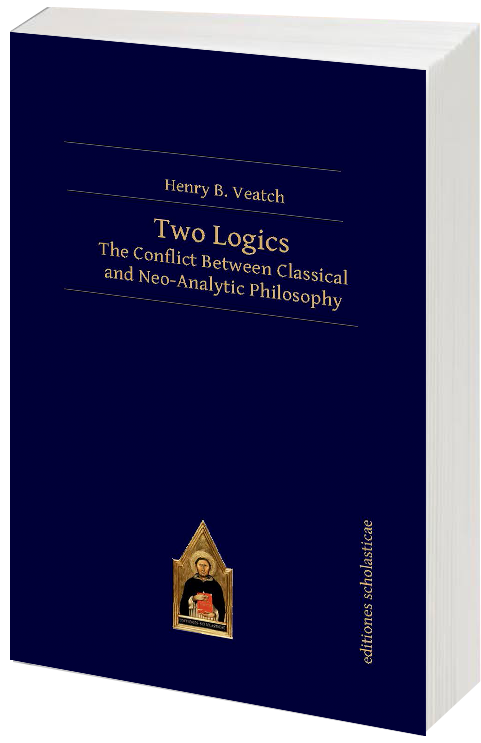The Conflict Between Classical and Neo-Analytic Philosophy
Henry B. Veatch
Abstract
This book is a consideration of the differences between Aristotelian and symbolic logic (and the metaphysical assumptions they come packaged with) and the consequences these have for how we view the world. What Veatch propose is to try to exhibit with respect to several of the key logical tools and devices – propositions, inductive and deductive arguments, scientific and historical explanations, definitions, etc. – how these several instruments are differently conceived, both as to their natures and their functions, in each of these respective logics.
Contents
Introduction: the battle of the books renewed — A logic that can’t say what anything is — Alternative logics: a what-logic and a relating-logic — The what-statements of a what-logic: why they are not analytic truths — The what-statements of a what-logic: why they are not synthetic truths — The disabilities of a relating-logic: the fallacy of inverted intentionality — The world as seen through a relating-logic — A what-logic and its supposed commitment to essences and substantial forms — Induction as conceived by a relating-logic and a what-logic — The picture of the world derived from the inductions in a relating-logic — Deductive explanation: a likely case study in surrealism? — From deductive explanation in general to historical explanation in particular — A short digression from history into ethics — Conclusion: epilogue or epitaph?
About the Author
Henry Veatch (1911 – 1999) obtained his Ph.D. from Harvard University in 1937 and spent his career at Indiana University (1937–1965), Northwestern University (1965–1973), and Georgetown University (1973–1983) where he was Philosophy Department Chair from 1973 to 1976. He also had visiting professorships at Colby College, Haverford College and St. Thomas University. He served as president of the Metaphysical Society of America in 1961. In 1970–71 he served as president of the Western Division of the American Philosophical Association. He published 15 books and many articles mainly in the fields of metaphysics and ethics.


